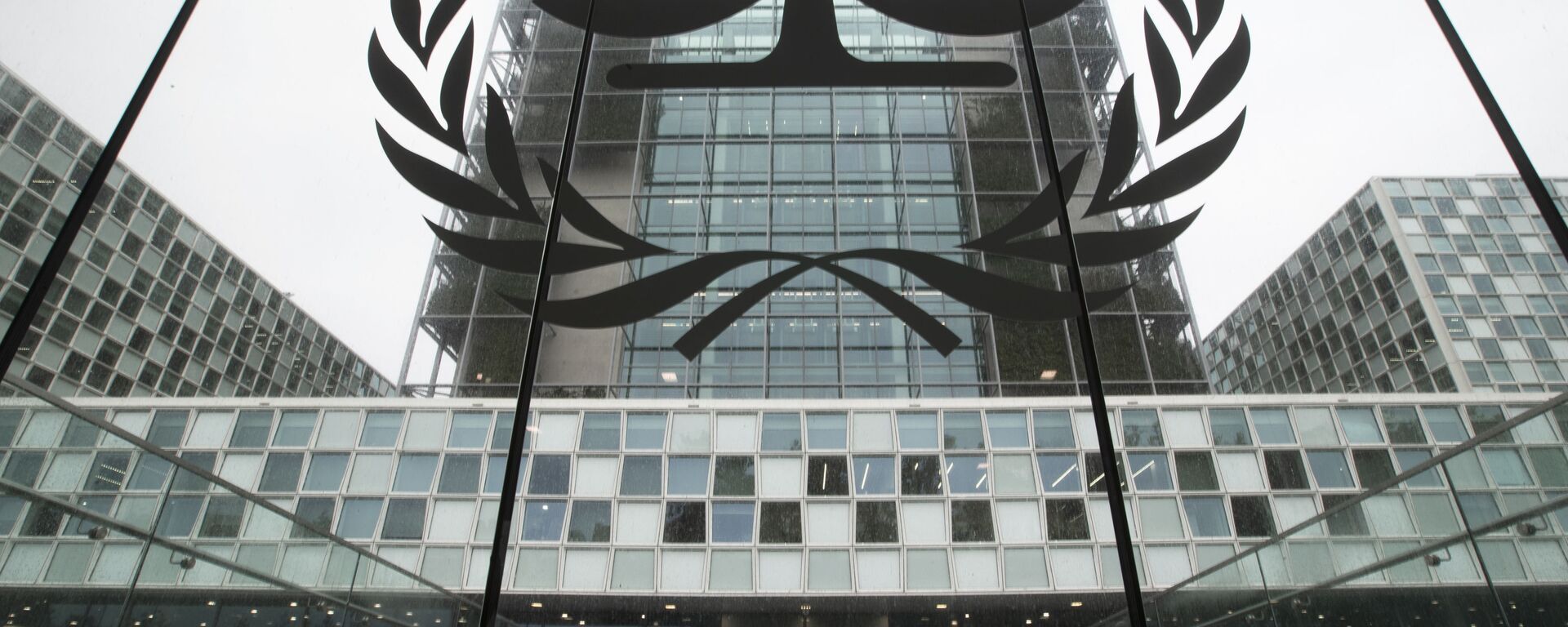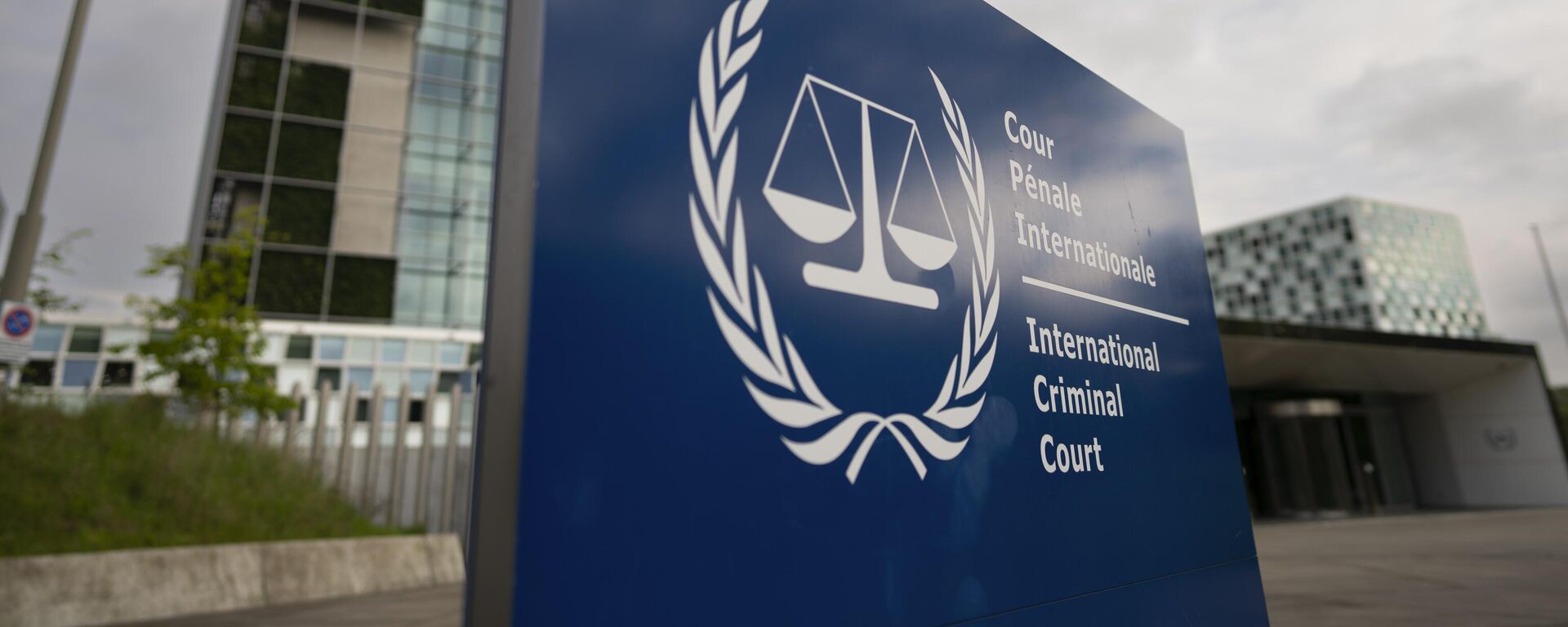https://sputnikglobe.com/20240522/will-icc-step-out-of-us-shadow-as-its-ag-requests-arrest-warrant-for-netanyahu-hamas-leaders-1118574813.html
Will ICC Step Out of US Shadow With Warrant for Netanyahu, Hamas Leaders?
Will ICC Step Out of US Shadow With Warrant for Netanyahu, Hamas Leaders?
Sputnik International
ICC Attorney General Karim Khan requested the issuance of an arrest warrant for Israeli PM Netanyahu and three Hamas leaders, thus sparking debate on ICC current status.
2024-05-22T03:37+0000
2024-05-22T03:37+0000
2024-05-22T04:12+0000
analysis
us
international criminal court (icc)
israel
hamas
benjamin netanyahu
arrest warrants
israeli-palestinian conflict
israel-gaza conflict
palestine-israel conflict
https://cdn1.img.sputnikglobe.com/img/102343/42/1023434246_0:142:1840:1176_1920x0_80_0_0_63769b758be50659ccda05db1cb94348.jpg
The ICC's decision marks a significant departure from its historical alignment with US policies, raising questions about the motivations behind this sudden shift. Christopher C. Black, a seasoned international criminal lawyer, noted that while the ICC has long been perceived as following Washington's lead, Khan's recent actions indicate a complex interplay of political and moral pressures from multiple countries.Black highlighted that the ICC had previously acknowledged potential war crimes by Israel during the 2014 Gaza conflict but had hesitated to file charges. The actions against Russian President Vladimir Putin at NATO's behest contrasted sharply with the delayed proceedings against Israel. This disparity underscores the ICC's perceived political inclinations.Foreseeable Yet ControversialBlack argued that Khan's decision was foreseeable given the mounting global pressure and the International Court of Justice's suggestion of possible genocide. However, he criticized the timing and scope of the charges. Khan's focus on the siege of Gaza and the denial of essential supplies, while significant, omits the broader context of aerial assaults and the overarching crime of aggression, according to Black. He also condemned the parallel charges against Hamas leaders, viewing them as politically motivated and potentially detrimental to ongoing peace negotiations.The inclusion of high-profile experts like Amal Clooney and Baroness Kennedy, both with connections to Western political agendas, adds another layer of complexity to the decision.US Response: Predictable Hypocrisy?The US reaction, characterized by strong condemnation and threats of sanctions, was deemed predictable by both Black and Professor Alfred de Zayas, a former UN Independent Expert International Order. Black criticized the US for its hypocritical stance—denouncing charges against Israel while leveraging the ICC against Putin. He suggested that President Biden's administration might be using the charges to appease domestic critics of his support for Israel's actions in Gaza.De Zayas, on the other hand, welcomed the ICC's move as a step towards restoring its credibility. He emphasized the need for accountability for all involved in the conflict."The credibility of the International Criminal Court improves by virtue of Karim Khan's request for the issuance of arrest warrants against both Israeli and Hamas leaders," he stated.Implications for ICC and Global PoliticsWhile some view the ICC's actions as a sign of declining US influence within the court, Black disagreed, asserting that the ICC remains under significant political control by the EU, UK, and US He maintained that despite internal disagreements, the court's decisions are ultimately shaped by these powers.De Zayas's perspective suggests a potential shift towards a more balanced approach, holding both Israeli and Hamas leaders accountable. However, he also underscored the importance of addressing the complicity of Western politicians in the broader context of the Israeli-Palestinian conflict.
https://sputnikglobe.com/20240521/icc-move-against-israeli-leadership-heralds-decline-of-us-influence-in-international-institutions-1118570692.html
https://sputnikglobe.com/20240521/us-disregards-iccs-authority-on-arrest-warrant-against-netanyahu--1118552163.html
israel
Sputnik International
feedback@sputniknews.com
+74956456601
MIA „Rossiya Segodnya“
2024
News
en_EN
Sputnik International
feedback@sputniknews.com
+74956456601
MIA „Rossiya Segodnya“
Sputnik International
feedback@sputniknews.com
+74956456601
MIA „Rossiya Segodnya“
icc attorney general karim khan, icc warrant on netanyahu, will netanyahu be arrested, will icc arrest netanyahu, what is the icc decision on netanyahu
icc attorney general karim khan, icc warrant on netanyahu, will netanyahu be arrested, will icc arrest netanyahu, what is the icc decision on netanyahu
Will ICC Step Out of US Shadow With Warrant for Netanyahu, Hamas Leaders?
03:37 GMT 22.05.2024 (Updated: 04:12 GMT 22.05.2024) In a landmark move, ICC Attorney General Karim Khan has requested the issuance of an arrest warrant for Israeli Prime Minister Benjamin Netanyahu, alongside Hamas leaders, on charges related to the ongoing conflict in Gaza, thus sparking debate on ICC current status.
The ICC's decision marks a significant departure from its historical alignment with US policies, raising questions about the motivations behind this sudden shift. Christopher C. Black, a seasoned international criminal lawyer, noted that while the ICC has long been perceived as following Washington's lead, Khan's recent actions indicate a complex interplay of political and moral pressures from multiple countries.
Black highlighted that the ICC had previously acknowledged potential war crimes by Israel during the 2014 Gaza conflict but had hesitated to file charges. The actions against Russian President Vladimir Putin at NATO's behest
contrasted sharply with the delayed proceedings against Israel. This disparity underscores the ICC's perceived political inclinations.
Foreseeable Yet Controversial
Black argued that Khan's decision was foreseeable given the mounting global pressure and the International Court of Justice's suggestion of possible genocide. However, he criticized the timing and scope of the charges. Khan's focus on the siege of Gaza and the denial of essential supplies, while significant, omits the broader context of aerial assaults and the overarching crime of aggression, according to Black. He also condemned the parallel charges against Hamas leaders, viewing them as politically motivated and potentially detrimental to ongoing peace negotiations.
The inclusion of high-profile experts like Amal Clooney and Baroness Kennedy, both with connections to Western political agendas, adds another layer of complexity to the decision.
"Why Khan buckled finally vis a vis Israel is a question. The answer may be found in the "experts" so-called he called on to support him. The most important, Amal Clooney and Baroness Kennedy are assets of the British...But we may never know all the political shadow play that has gone on to produce this drama," said Black.
US Response: Predictable Hypocrisy?
The US reaction, characterized by strong condemnation and threats of sanctions, was deemed predictable by both Black and Professor Alfred de Zayas, a former UN Independent Expert International Order. Black criticized the US for its hypocritical stance—denouncing charges against Israel while leveraging the ICC against Putin. He suggested that President Biden's administration might be using the charges to appease domestic critics of his support for Israel's actions in Gaza.
De Zayas, on the other hand, welcomed the ICC's move as a step towards restoring its credibility. He emphasized the need for accountability for all involved in the conflict.
"The credibility of the International Criminal Court improves by virtue of Karim Khan's request for the issuance of arrest warrants against both Israeli and Hamas leaders," he stated.
Implications for ICC and Global Politics
While some view the ICC's actions as a sign of declining US influence within the court, Black disagreed, asserting that the ICC remains under significant political control by the EU, UK, and US He maintained that despite internal disagreements, the court's decisions are ultimately shaped by these powers.
De Zayas's perspective suggests a potential shift towards a more balanced approach, holding both Israeli and Hamas leaders accountable. However, he also underscored the importance of addressing the complicity of Western politicians in the broader context of the Israeli-Palestinian conflict.




